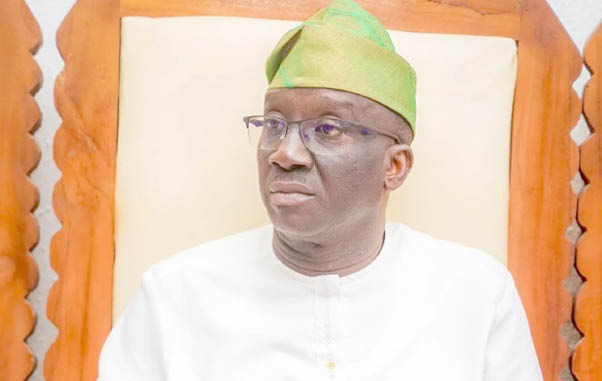Edo State, often celebrated as the heartbeat of Nigeria due to its rich cultural heritage and vibrant economic potential, is grappling with a silent crisis that threatens its growth and prosperity. According to a recent statement by Edo State Governor, Senator Monday Okpebholo, the state is losing over $1 billion annually in potential investments due to persistent cult-related violence. This staggering figure, revealed on May 21, 2025, through the governor’s Chief Press Secretary, Fred Itua, paints a grim picture of a state held hostage by insecurity, deterring both local and diaspora investors. In this blog post, we delve into the details of this issue, explore its implications, and highlight the governor’s bold initiatives to restore peace and attract investment back to Edo State.
The Economic Toll of Cult Violence
Cult-related violence has plagued Edo State for the past five years, predating Governor Okpebholo’s administration, which assumed office in November 2024. These clashes, often involving rival cult groups, have resulted in significant loss of life, destruction of property, and widespread fear among residents. The ripple effects of this violence extend far beyond immediate casualties, deeply impacting the state’s economic landscape. Businesses, particularly in sectors like hospitality, transportation, and tourism, have suffered immense setbacks. Hotels, restaurants, and tourist attractions—once bustling with activity—have seen declining patronage as safety concerns deter visitors.
The governor’s statement underscores a critical point: the economic cost of this insecurity is monumental. The $1 billion annual loss in potential investments reflects missed opportunities in agriculture, real estate, hospitality, and other key sectors. Edo State, despite its strategic location, fertile lands, and vibrant workforce, is losing its competitive edge to safer investment destinations. For a state that leads Nigeria in diaspora remittances, this is particularly alarming. According to Okpebholo, 95% of remittances from Edo indigenes abroad are invested outside the state, as investors seek safer havens for their capital. This diversion of funds represents not just a financial loss but a missed chance to create jobs, develop infrastructure, and improve the quality of life for Edo residents.
Governor Okpebholo’s War on Cultism
Since taking office, Governor Okpebholo has made tackling cult-related violence a top priority. His administration has declared a “total war” on cultism, signaling a zero-tolerance approach to this menace. Early efforts are already yielding results, with the governor citing the support of stakeholders across the state as a key factor in these successes. Security operations have been intensified, and community engagement initiatives are underway to address the underlying social and economic factors that fuel cult activities.
The governor’s strategy is multifaceted, combining law enforcement with preventive measures. By working with local leaders, youth groups, and security agencies, the administration aims to dismantle cult networks and rehabilitate those involved. Additionally, Okpebholo has emphasized the importance of economic empowerment as a long-term solution. By creating opportunities for youth in agriculture, technology, and entrepreneurship, the government hopes to steer young people away from crime and toward productive ventures.
A Call to Invest in Edo State
In his statement, Governor Okpebholo extended a passionate appeal to Edo indigenes, particularly those in the diaspora, to reinvest in their home state. He highlighted the vast opportunities available in sectors like agriculture, real estate, and hospitality. Edo’s fertile lands are ideal for large-scale farming and agribusiness, while its growing urban centers offer potential for real estate development. The hospitality sector, though currently struggling, could rebound with the right investments and a restored sense of security.
To encourage investment, the governor has promised robust government support, including streamlined processes for business registration, access to incentives, and enhanced security measures to protect investors’ assets. This commitment is a critical step toward rebuilding trust and reversing the $1 billion annual loss. By creating a safe and business-friendly environment, Edo State can attract the capital needed to drive sustainable development.
The Road Ahead
The challenges facing Edo State are significant, but so too are the opportunities. Governor Okpebholo’s proactive stance on cult violence and his vision for economic revitalization offer hope for a brighter future. However, success will require sustained effort and collaboration between the government, private sector, and civil society. Community-driven initiatives, such as youth mentorship programs and vocational training, can complement security measures by addressing the root causes of cultism. Meanwhile, targeted campaigns to woo investors—both local and diaspora—can help restore confidence in Edo’s economic potential.
For Edo indigenes, the governor’s call to action is both a challenge and an invitation. By investing in their home state, they can play a pivotal role in its transformation. From agribusiness ventures to real estate projects, the opportunities are vast, and the potential rewards are immense. With the government’s commitment to security and support, now is the time for Edo’s sons and daughters to come together and build a prosperous future.
Join our Whatsapp channel to stay updated always!


